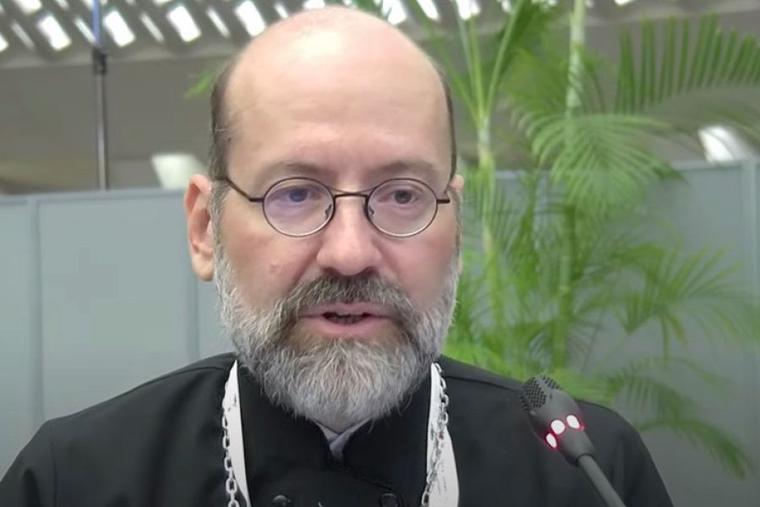- Feb 5, 2002
- 166,629
- 56,258
- Country
- United States
- Faith
- Catholic
- Marital Status
- Married
- Politics
- US-Others
Metropolitan Job, the Eastern Orthodox bishop of Pisidia and the permanent representative of the Ecumenical Patriarchate to the World Council of Churches, is attending the Synod on Synodality as a fraternal delegate.
Speaking to the Synod on Synodality on Monday, an Eastern Orthodox bishop said the definition of synodality of the October assembly “differs greatly” from the Orthodox understanding.
Metropolitan Job of Pisidia referenced the first ecumenical council, the Council of Nicea in 325, and quoted from the Apostolic Canons, a fourth-century Christian text on the government and discipline of the early Christian Church.
Drawing from this text, he said, “a synod is a deliberative meeting of bishops, not a consultative clergy-laity assembly.”
“In light of this, we could say that the understanding of synodality in the Orthodox Church differs greatly from the definition of synodality given by your present assembly of the Synod of Bishops,” he added. The current synod now underway at the Vatican is the first of its kind to include laypeople as full voting members.
Continued below.

 www.ncregister.com
www.ncregister.com
Speaking to the Synod on Synodality on Monday, an Eastern Orthodox bishop said the definition of synodality of the October assembly “differs greatly” from the Orthodox understanding.
Metropolitan Job of Pisidia referenced the first ecumenical council, the Council of Nicea in 325, and quoted from the Apostolic Canons, a fourth-century Christian text on the government and discipline of the early Christian Church.
Drawing from this text, he said, “a synod is a deliberative meeting of bishops, not a consultative clergy-laity assembly.”
“In light of this, we could say that the understanding of synodality in the Orthodox Church differs greatly from the definition of synodality given by your present assembly of the Synod of Bishops,” he added. The current synod now underway at the Vatican is the first of its kind to include laypeople as full voting members.
Continued below.

Eastern Orthodox Synods Are Bishops-Only, Metropolitan Tells Delegates
Metropolitan Job, the Eastern Orthodox bishop of Pisidia and the permanent representative of the Ecumenical Patriarchate to the World Council of Churches, is attending the Synod on Synodality as a fraternal delegate.
